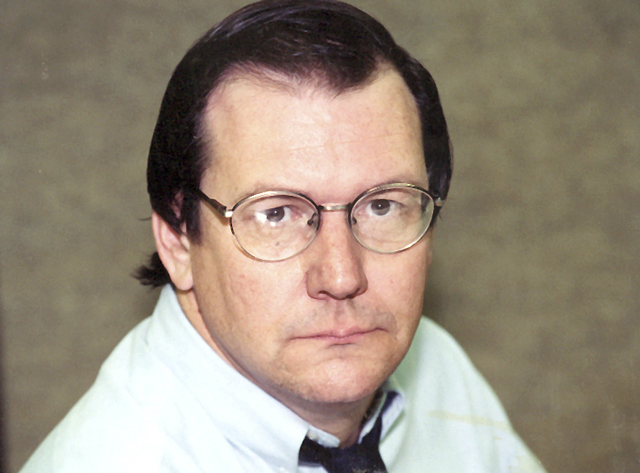Myers: Politics borrows product placement
“If I had a bowl of Skittles and I told you just three would kill you, would you still take a handful? That’s our Syrian refugee problem,” Donald Trump Jr. was quoted as writing last week.
The first thing that comes to mind is, so what? Junior is not running for anything. On the morning as I write this, I have received mass mailings from Chelsea Clinton and an Eric Trump who is identified in the mailing as another Trump son. I didn’t bother opening either mailing. But national political journalists have no self-control.
The next thing that came to mind was that here again, pop culture is being used to make politics resonate with a public that often needs things explained very simply.
It wasn’t always this way. National distribution of products is relatively new. There was a time when making reference to, say, Dr. Pepper or KFC would have drawn a blank in most of the nation. So, naturally, politicians avoided references to products. Dogs were more popular – Fala and Checkers both made their appearances in Septembers, 1944 and 1952.
When I was growing up in the 1950s and our family would drive from Nevada to Pennsylvania (this was before the construction of the interstates, so we actually drove down the main streets of innumerable towns instead of bypassing them from behind sound walls), we discovered products we had never encountered before.
In my case, that was particularly candy, and I was always trying new candies on those trips. Today, however, the rack of candy at a 7-Eleven on one coast is essentially identical to the rack of candy on the other coast, which makes it now part of a universal language in politics.
In 1984, Wendy’s Restaurants was running some commercials in which an elderly woman (Clara Peller) complained about how little meat there was on some chain burgers, demanding, “Where’s the beef?” During a debate, Democratic presidential candidate Walter Mondale responded to candidate Gary Hart’s incessant talk of “new ideas” by saying, “When I hear your new ideas, I’m reminded of that ad, ‘Where’s the beef?’” It was a home run, not helped by the fact that Hart’s initial reaction was agreement: “Uh-huh.” Later, Hart posed for cameras with a copy of one of his books inside a hamburger bun, but the delayed response is never as effective as the instant comeback. (It should be noted that Mondale didn’t know the commercial and an aide had to act it out for him to convince him to use it.)
In 2012, Mitt Romney adviser Eric Fehrnstrom said that in the general election campaign, his candidate would be able to drop all his issue stands that had gotten him the nomination in the primaries and caucuses: “Everything changes. It’s almost like an Etch A Sketch. You can kind of shake it up and we start all over again.” This suggested pretty strongly that Romney had no core principles and was all the more damaging because it was a Romneyite saying it.
These things don’t always work, and as often as not, whether a line succeeds or not depends on whether the candidate wielding it has momentum. In a 1988 debate, Michael Dukakis referred to George Bush as the “Joe Isuzu of American politics,” a reference that fell flat. Something similar happened to John Kerry in 2004 when he tossed out a reference to Tony Soprano.
Just as Mondale had to have Clara Peller’s line explained to her, a lot of these things are really going to puzzle history and political science students of the future.
Context is everything, products tend to come and go, and when some future student is reading the transcript of the 1988 debate, what will be made of the first George Bush’s reference to the Waffle House, a regional name, which didn’t even work when it was delivered in a debate?
Dennis Myers is an award-winning journalist who has reported on Nevada’s capital, government and politics for several decades. He has also served as Nevada’s chief deputy secretary of state.

















